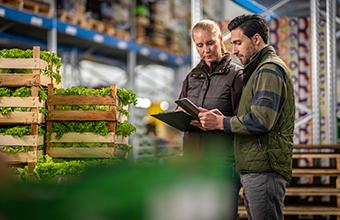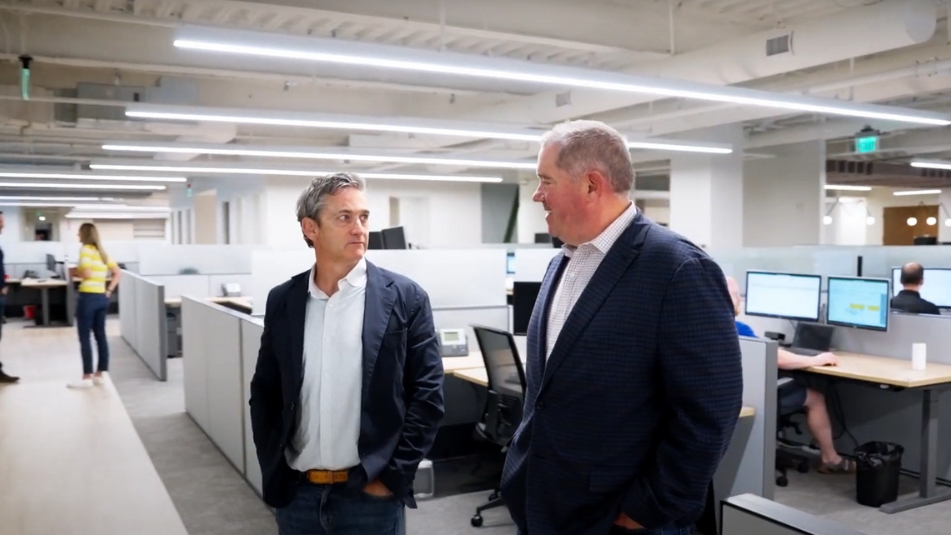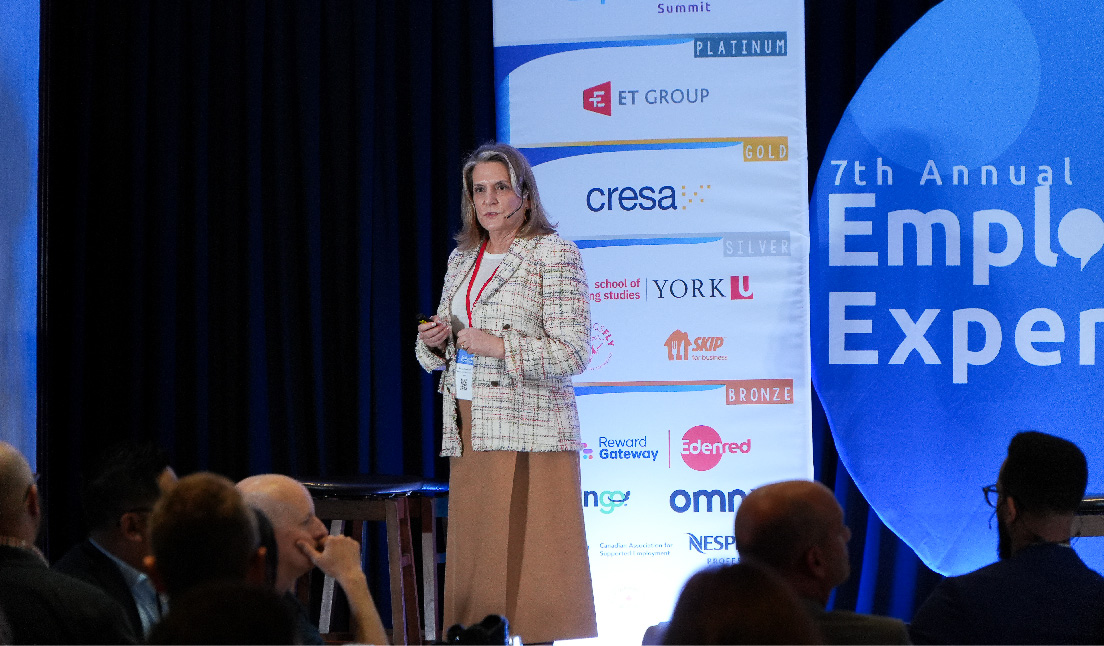Cresa is committed to building an inclusive workplace that encourages, supports, and celebrates the diverse voices of our employees. Our employee spotlight series gives our team members the opportunity to share their unique experiences. Get to know Gladys Hartey in the Q&A below.
What is your name, office, and position at Cresa?
My name is Gladys Hartey. I'm a regional operations manager here at Cresa. I'm based out of lovely Philadelphia, but I support, Philadelphia, New York City, the Carolinas, and the entire state of Florida. We're up to four offices down there!
How long have you worked at Cresa?
10 full years.
How did you get into the industry?
In 2005, I was working for a local developer in Norwalk, Connecticut, where I'm originally from. I was showing the building that was for sale to a commercial real estate broker based out of New York. And he said, “I love your energy. I want you to come and work for me and be on my team.”
And so I worked for a brokerage team in New York City for about three years. Going from brokerage to brokerage with the team. I've worked at almost every single one of our competitors.
It's been a wild ride, but I've been here for 10 years. So there's something to say about Cresa, right!?
I worked on that team from 2005 - 2008 when the market tanked. I was coming out of commissions, so I had to pivot and find an administrative position within the company that was available. From there, I was pigeonholed into being an admin and put in a box, essentially. And I don't think people really ever got to fully understand how much of the industry I had been exposed to, how much I knew. And I was really really good at my job so they didn’t want to lose me as an admin either.
It wasn't until I got to Cresa, that I was able to gain more exposure. The Spring Meeting was where I started meeting people and people figured out that I had more to offer. Honestly, if it wasn't for the meeting, I don't think I would've ever gotten out of that admin role to branch out and become an account manager and then become an operations manager with the corporate team. I worked with Elizabeth Harding and Sarah Wager for a while. And then I became the regional. It's been a great experience, honestly.
What are some challenges you have encountered during your career and how did you overcome them?
Being pigeonholed into that position and not being seen as anything more than “you're an admin, stay where you are.” That was probably the biggest challenge, and I was having babies and working and doing all of that. It's like you're in a mind fog. I feel like I finally came up for air in 2018, and I started having kids in 2014. It’s really challenging to be a working mom. And I'm Latina, and my name is Gladys...
Honestly, I think the reason I got the job in New York City was because I was a Hispanic woman to take on pitches. It's helped me in some aspects, but I think it's hurt me in other aspects too. Everyone who meets me is always saying, “Oh, I thought you were an 80-year-old woman” because of my name. Sometimes I'm preemptive about it and I just say, “No, I'm not 80. I hope to be someday.” But commercial real estate is definitely male-dominated and you have to be comfortable in your own skin and be able to speak up when you need to. It's hard to take space up in a room when it's usually mostly men and white men at that.
Why are you passionate about what you do?
I think it's because I love helping people and I love connecting the dots. I'm a regional, so I work with a bunch of different market leaders and managing principles and I love being like, “Oh, this guy down here is doing this. You should look at this.” I like helping them help each other because it's silly to reinvent the wheel in every region. And I love commercial real estate. I've been a part of it for a long time, even before 2005, when I was working for a developer, and prior to that I was working for a very small apartment rental company. I've been a part of real estate my whole career. I love how fun it is and how different every day can be.
Are there any projects or contributions that you want to share?
I am currently co-chair of the Emerging Leadership Council (ELC) which does the Cresa College at Spring Meeting. It's basically Cresa 101. In Vegas was our first year doing it. This time in Atlanta, we did it again, but this time I had the idea of bringing the history of Cresa. I brought in Matt Feeney, who's one of our OG's, and he did the whole overview of how we became Cresa and it was just stellar. Every year that we do it, we get more ideas of how to make it better for the next year. And we've got more planned for that.
I also help the Strategic Leadership Council (SLC) with their initiatives and their monthly meetings. Right now we're trying to decide what we're going to work on next, but we've been working with Greg Schementi and trying to figure out where we could focus our energy.
I also am co-chair of Cresa Cultures, and I just want to say that if you're a part of Cresa and you want to be a part of something bigger, then please volunteer. The DIBs organization is always looking for more volunteers and more members. Shoot me an email, and send me your ideas.
We're always looking for initiatives for the ELC and the SLC and just get involved. It's so much fun to meet new people from around the country who are within Cresa. I feel like the more you meet people, the more you can connect dots, and it makes you better at your job.
What organizations outside of Cresa are you currently involved with?
I'm not currently involved with this organization due to personal reasons, but up until the end of summer last year, I was volunteering monthly for a homeless outreach. It was a bunch of moms that came together to collect donations, then every third Saturday of the month, we would set up tables at the local train station where there's a large population of homeless people and we would have clothing, shoes, toiletries, lunches made, sleeping bags, tents. And we would sit there from 12:00-2:00 PM. Everybody knew we were coming because we would do it every month, rain or shine.
One time when I volunteered, it was pouring rain. Just pouring rain, and it was July, midsummer, so you think you're going to be fine in the pouring rain, but I was bone cold, so cold. When I got home, I took the longest, hottest shower ever. I was still cold afterward and I just kept thinking of all those people out there that didn't get a warm shower and are still freezing cold. And how do you ever even recover from that?
It's a really great effort and organization. I got divorced last year and I happened to have my kids at the same time that this event happens and I just can't bring them there. There are drug deals happening right next to you, it's too dangerous for them. But I hope one day to be able to go back and get involved again.
How did you become involved in that organization originally?
Through Facebook of all things, on the local 'Buy Nothing' page. One of the women that runs the whole thing would ask for donations. If you have snacks your kids suddenly didn't like and you want to get rid of them, things like that. Or used shoes. Because we all use shoes up until when they “don't feel good anymore”, but these people are walking around with soleless shoes or no shoes at all. So she would ask for volunteers for lunches to be made. So that's how I started. I started making lunches on a monthly basis. That was at the beginning of 2021 and then she kept asking for people to come. You have to be a little vulnerable to go there and it's a little scary. It's mainly men and it's all women volunteering. But the people are lovely. They're so grateful to see you. They wouldn't ever want to cause you any harm because they kind of rely on you. So it was very fulfilling. I really miss it, actually.
What has that involvement taught you about life and people?
Oh my gosh. That any of us could end up this way. It just happens. Just a bad set of circumstances. These aren't people who want to be out there. And some of these people had their work uniforms on and they're homeless – they're going to work, they're taking lunches, and they're like, “Yeah, $7.25 an hour. That’s our state minimum wage. That doesn't cover it.” It's not a livable wage.
The one story I will always hold onto is that there was once this guy who came around, and we'd always have things like new underwear and clothing and shoes and he grabbed a little bit of everything – lunch, protein shakes for later. And he just turned to me and said, “I was about to go to Walmart and steal all this stuff, thank you for being here.” And I was just thinking he's not asking for anything more than what every person deserves in life.
What was the name of the organization?
It was a part of CAARSEA, which is a neighborhood group focused on anti-racism and social justice. This one woman from that group started this on her own, but she uses that organization as her basis.
How can people find places like that to volunteer?
Honestly, I would say just look around. I found it in the most unsuspecting place, the Buy Nothing group in my Facebook. Or just Google it. Or if you want to just get started on how to get involved, you can volunteer to organize your next Cresa Cares event. It's not an easy thing to do, and you have to do some research. But it's great to get involved in any way. It just brings so much meaning. Humans need community.
How do you think we can better promote diversity, inclusion and belonging within the CRE industry?
The first thing I'd like to say is to get involved. We all need help. We're all doing our day-to-day jobs, and it seems like the people who are in DIBs are doing their day-to-day jobs and four other things. So if you have any ideas or think that you could give back to DIBs, it would be great.
I personally love Cresa Cultures because I'm a Latina woman in this very white, male-dominated industry. It's hard to be somewhere where you don't see yourself. So that's why I have a passion for Cresa Cultures. I also have a lot of passion for promoting diversity within this industry. Because it's one of these weird industries that I fell into. I didn't look for it, I didn't even know it existed. And I think most people are like that with commercial real estate. It's not something that is on the radar, it's not like people go to school and say, “I'm going to become a commercial real estate broker.” It’s somebody who knows somebody who does this and does well in it. So that's how you figure out that this is what you want to do.
I think our intention is to look more like our clients and to have more diversity because diversity brings ideas and experiences, all sorts of it. There are so many studies that say companies benefit when there's more diversity in the room because people from different backgrounds have different experiences in life and can bring different things to the table. I know that I'm the spicy Latina here and I pride myself in trying to see other people's points of view and give everybody the benefit of the doubt. And that's not necessarily everybody's perspective or the way they operate. I feel like it's a female thing to do too. And as we know, we can always use more females in commercial real estate.
How do you think that we can recruit more diverse talent within Cresa?
It needs to be a concerted effort, I think it's actively going to certain colleges, maybe community colleges, and getting more people to learn about commercial real estate. I know through CoreNet they have an educational branch of their groups. So doing something like that would be the best way. You have to go out there and find them. It's not just going to organically happen.
Is there anything else that you wanted to share?
I think what Covid taught me more than anything is that being a part of something is important. I think as humans, we crave community, we crave being a part of something bigger than just ourselves. I craved it in many different ways. Before Covid, I was a gym rat. I went to CrossFit, five days a week. And I miss that so much, just being active and being a part of a community. I do Orange Theory now and that community is what got me through a lot of things, like my divorce. Honestly, these people are like my best friends now. Part of getting yourself to be a part of something requires vulnerability and showing up, and telling people your truth and living your life in a more honest way. Even if it's just going to the gym or finding a community center to participate in or finding a group to volunteer with, I think being a part of something bigger is so meaningful, and it brings so much to my life.




